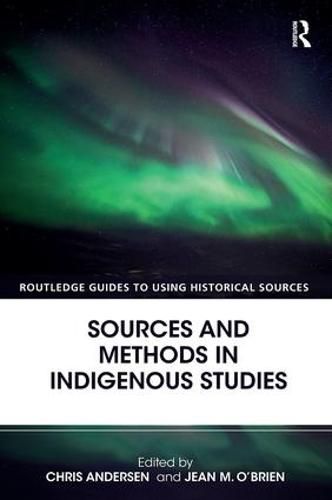Readings Newsletter
Become a Readings Member to make your shopping experience even easier.
Sign in or sign up for free!
You’re not far away from qualifying for FREE standard shipping within Australia
You’ve qualified for FREE standard shipping within Australia
The cart is loading…






Sources and Methods in Indigenous Studies is a synthesis of changes and innovations in methodologies in Indigenous Studies, focusing on sources over a broad chronological and geographical range. Written by a group of highly respected Indigenous Studies scholars from across an array of disciplines, this collection offers insight into the methodological approaches contributors take to research, and how these methods have developed in recent years.
The book has a two-part structure that looks, firstly, at the theoretical and disciplinary movement of Indigenous Studies within history, literature, anthropology, and the social sciences. Chapters in this section reveal that, while engaging with other disciplines, Indigenous Studies has forged its own intellectual path by borrowing and innovating from other fields. In part two, the book examines the many different areas with which sources for indigenous history have been engaged, including the importance of family, gender, feminism, and sexuality, as well as various elements of expressive culture such as material culture, literature, and museums. Together, the chapters offer readers an overview of the dynamic state of the field in Indigenous Studies.
This book shines a spotlight on the ways in which scholarship is transforming Indigenous Studies in methodologically innovative and exciting ways, and will be essential reading for students and scholars in the field.
$9.00 standard shipping within Australia
FREE standard shipping within Australia for orders over $100.00
Express & International shipping calculated at checkout
Stock availability can be subject to change without notice. We recommend calling the shop or contacting our online team to check availability of low stock items. Please see our Shopping Online page for more details.
Sources and Methods in Indigenous Studies is a synthesis of changes and innovations in methodologies in Indigenous Studies, focusing on sources over a broad chronological and geographical range. Written by a group of highly respected Indigenous Studies scholars from across an array of disciplines, this collection offers insight into the methodological approaches contributors take to research, and how these methods have developed in recent years.
The book has a two-part structure that looks, firstly, at the theoretical and disciplinary movement of Indigenous Studies within history, literature, anthropology, and the social sciences. Chapters in this section reveal that, while engaging with other disciplines, Indigenous Studies has forged its own intellectual path by borrowing and innovating from other fields. In part two, the book examines the many different areas with which sources for indigenous history have been engaged, including the importance of family, gender, feminism, and sexuality, as well as various elements of expressive culture such as material culture, literature, and museums. Together, the chapters offer readers an overview of the dynamic state of the field in Indigenous Studies.
This book shines a spotlight on the ways in which scholarship is transforming Indigenous Studies in methodologically innovative and exciting ways, and will be essential reading for students and scholars in the field.